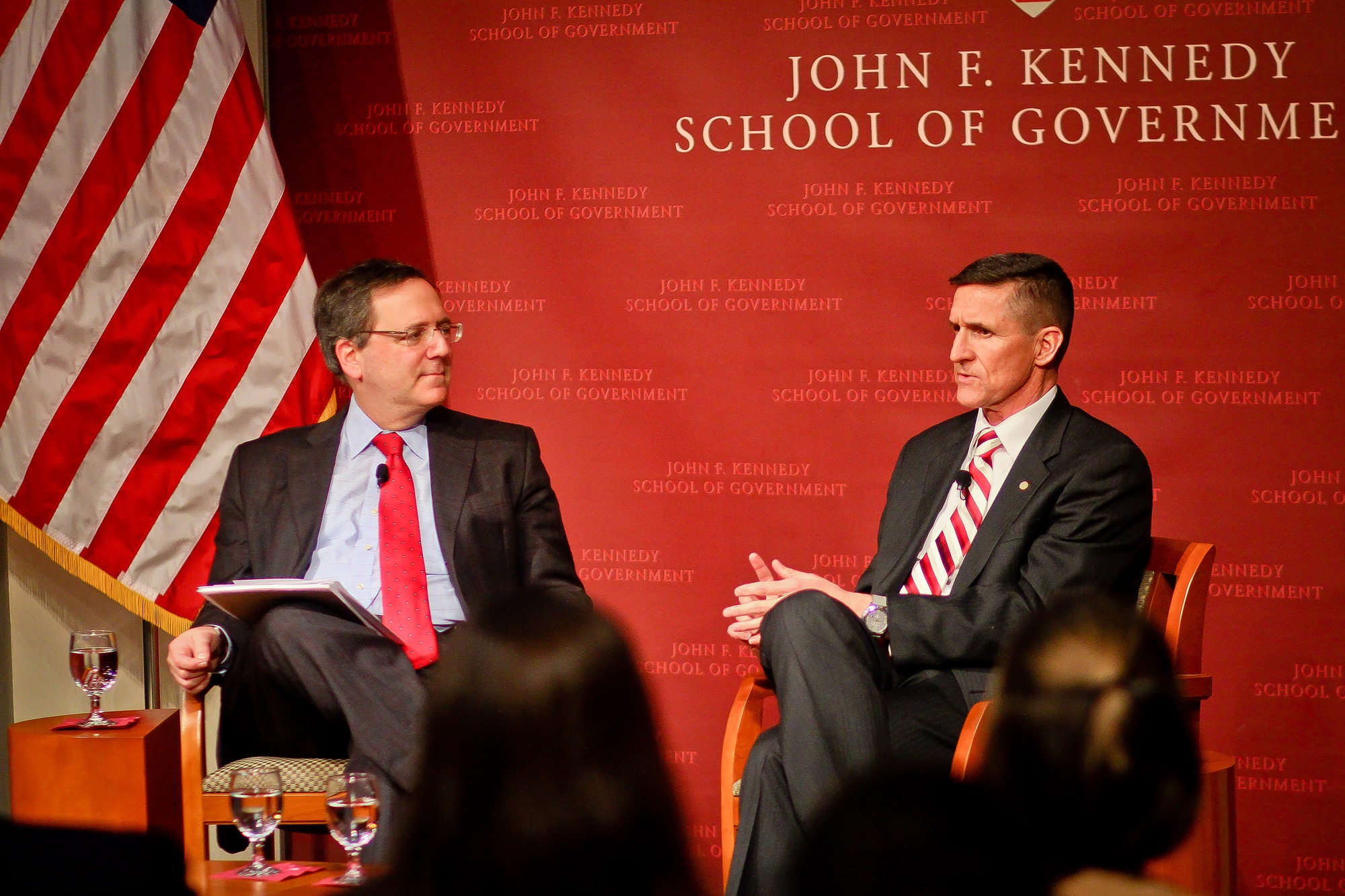
News
Summers Will Not Finish Semester of Teaching as Harvard Investigates Epstein Ties

News
Harvard College Students Report Favoring Divestment from Israel in HUA Survey

News
‘He Should Resign’: Harvard Undergrads Take Hard Line Against Summers Over Epstein Scandal

News
Harvard To Launch New Investigation Into Epstein’s Ties to Summers, Other University Affiliates

News
Harvard Students To Vote on Divestment From Israel in Inaugural HUA Election Survey
Defense Director Reflects on U.S. Security


Defense Intelligence Agency director Michael T. Flynn reflected on the role of the DIA in U.S. security at the John F. Kennedy Jr. Forum Tuesday evening.
Flynn, who has served as the director since 2012, said that urbanization and population growth have altered the scale and scope of the nation’s security challenges in recent decades.
“There are going to be large numbers of people in locations where there is not the strength of institutions that we take for granted in this country,” said Flynn, estimating that close to 10 billion people will populate the world within the next few decades.
David E. Sanger ’82, a senior writer for the New York Times and former Crimson editor, moderated the forum, asking Flynn questions about former National Security Agency contractor Edward Snowden.
Flynn expounded upon the leaks from the past year, emphasizing the institution’s focus on identifying and tagging individuals behind intelligence breaches.
“I thought it was really fascinating because a lot of people think cyberattacks are these kind of computer-manifested problems,” said Avika Dua ’17. “It’s more about understanding actual humans’ intentions and capabilities, rather than the computer.”
Flynn also commented on the post-Arab Spring era in the Middle East and its effect on the already tense discourse with the U.S. He doubted a forthcoming U.S. resolution, noting that civil and regional conflict is something that will continue into the future.
“The real challenge these days, and that is of concern for the international community, is the foreign element inside the extremist groups in Syria,” Flynn said.
Beyond the discussion of current events, Flynn said he hoped the forum would educate the younger generation about the institution’s evolving role in the context of modern-day security challenges.
“I hope [the audience] gain[ed] an appreciation for the demands our nation is facing in this 21st-century world,” he said.
Carolyn R. Ye ’17 agreed, noting that Flynn’s analysis of Snowden’s leaks and the DIA’s response toward the leaks has clarified her understanding of U.S. intelligence groups.
“There’s this whole mystique about the intelligence agencies,” Ye said. “[The forum] cleared up a lot of misconceptions about the DIA.”
Flynn ended the evening by acknowledging the difficulties of the past, yet looking forward.
“When you look at where we are today in the scale and the scope of some of the security challenges we face,” Flynn said. “That is the here and now. We need to think about the future, your future.”
—Staff writer Meg P. Bernhard can be reached at mbernhard@college.harvard.edu. Follow her on twitter @Meg_Bernhard.
Want to keep up with breaking news? Subscribe to our email newsletter.
